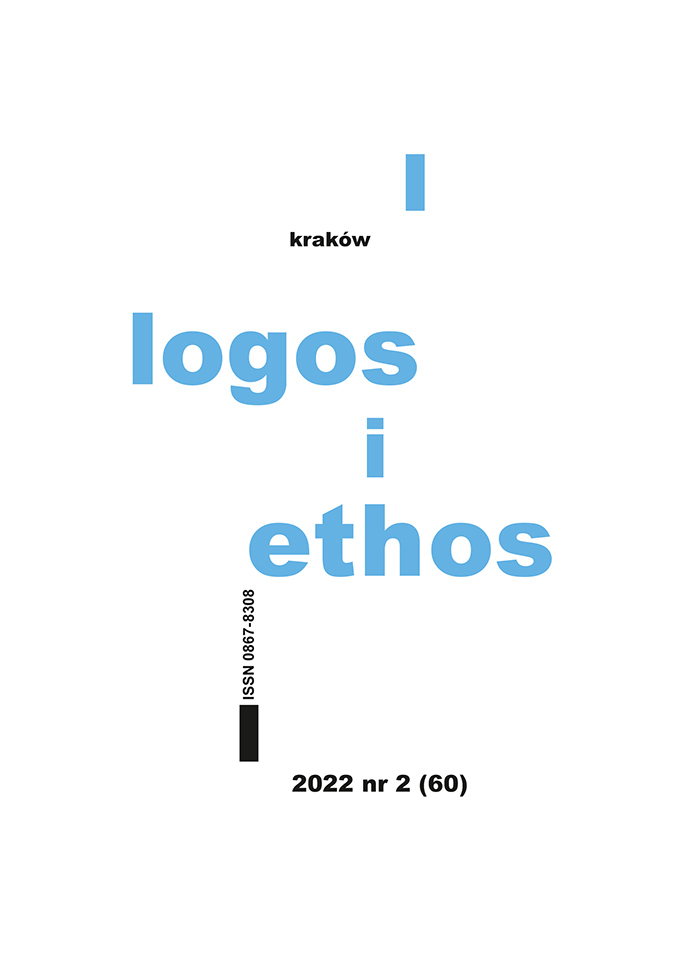Should We Want to See God More Clearly? A Sketch from the Axiology of the Phenomenology of Religion
DOI:
https://doi.org/10.15633/lie.60201Keywords:
phenomenology of religion, axiology, hiddenness, Blaise Pascal, Joseph RatzingerAbstract
In contemporary analytical philosophy of religion, there is a discussion devoted to the problem of divine hiddenness. The main question it raises is “why isn’t God more obvious?” This discussion has a part in common with the discussion going on under the heading “axiology of theism”. The main question is whether we should want God to exist. Situated at the intersection of these two discussions is the so-called “axiological answer to the problem of divine hiddenness”. This answer is contained in the statement that a world in which God is not fully manifest is better than a world in which God’s obviousness would be greater. In this article I will follow in the footsteps of the proponents of the “axiological answer” to the question of divine hiddenness. The subject of my interest will be the question “should we want to see God more clearly?” Thus, I will consider the problem, which can be classified in the area of the “axiology of the phenomenology of religion”. Guides on the way to finding an answer to this question will be analytical philosophers of religion, as well as Blaise Pascal and Joseph Ratzinger. I will take up the consideration of the epistemic situation in which “ordinary” human beings find themselves, and expand it to include a Christological thread. I will present arguments for the thesis that we should not want to see God more clearly.
References
Cullison A., Two Solutions to the Problem of Divine Hiddenness, „American Philosophical Quarterly” 47 (2010) nr 2, s. 119–134.
Dobrzeniecki M., Ukrytość i Wcielenie. Teistyczna odpowiedź na argument Johna L. Schellenberga za nieistnieniem Boga, Kraków 2020.
Dumsday T., Anti-Theism and the Problem of Divine Hiddenness, „Sophia” 55 (2016) nr 2, s. 179–195.
Hendricks P., Lougheed K., Undermining the Axiological Solution to Divine Hiddenness, „International Journal for Philosophy of Religion” 86 (2019) nr 1 s. 3–15; https://doi.org/10.1007/s11153-018-9693-y.
Hołda M., Źródło i noc. Wprowadzenie do współczesnego absconditeizmu, Kraków 2020.
Hick J., Evil and the God of Love, New York 2010.
Jan od Krzyża św., Droga na górę Karmel, tłum. B. Smyrak, Kraków 2010, s. 169–486.
Judycki S., Filozofia i chrystologia, „Analiza i Egzystencja” 10 (2009), s. 7–32.
Kahane G., Should We Want God to Exist?, „Philosophy and Phenomenological Research” 82 (2010) nr 3, s. 674–696; https://doi.org/10.1111/j.1933-1592.2010.00426.x.
Kraay K., Invitation to the Axiology of Theism, w: K. Kraay, Does God Matter? Essays on the Axiological Consequences of Theism, New York 2018, s. 1–35.
Lougheed K., The Axiological Solution to Divine Hiddenness, „An International Journal of Analytical Philosophy” 31 (2018) nr 3, s. 331–341; https://doi.org/10.1111/rati.12186.
Pascal B., Myśli, tłum. T. Boy-Żeleński, Gliwice 2019.
Pismo Święte Starego i Nowego Testamentu, Poznań 2007.
Ratiznger J./Benedykt XVI, Jezus z Nazaretu. Od wjazdu do Jerozolimy do Zmartwychwstania, tłum. W. Szymona, Kraków 2019.
Ratzinger J., O sensie bycia chrześcijaninem, tłum. J. Merecki, Kraków 2006.
Ratzinger J., Rozumienie Objawienia i teologia historii według Bonawentury. Rozprawa habilitacyjna i studia nad Bonawenturą, tłum. J. Merecki, Lublin 2014.
Rea M., The Hiddenness of God, Oxford 2018.
Schellenberg J., Argument z ukrytości, tłum. R. Mordarski, Bydgoszcz 2019.
Downloads
Published
Issue
Section
License
Copyright (c) 2022 Miłosz Hołda

This work is licensed under a Creative Commons Attribution 4.0 International License.
Authors who publish with this journal agree to the following terms:
- Authors retain the copyright and full publishing rights without restrictions, and grant the journal right of first publication with the work simultaneously licensed under a Creative Commons Attribution 4.0 International License that allows others to share the work with an acknowledgement of the work's authorship and initial publication in this journal.
- Authors are able to enter into separate, additional contractual arrangements for the non-exclusive distribution of the journal's published version of the work (e.g., post it to an institutional repository or publish it in a book), with an acknowledgement of its initial publication in this journal.
- Authors are permitted and encouraged to post their work online (e.g., in institutional repositories or on their website) prior to and during the submission process, as it can lead to productive exchanges, as well as earlier and greater citation of published work (See The Effect of Open Access).

